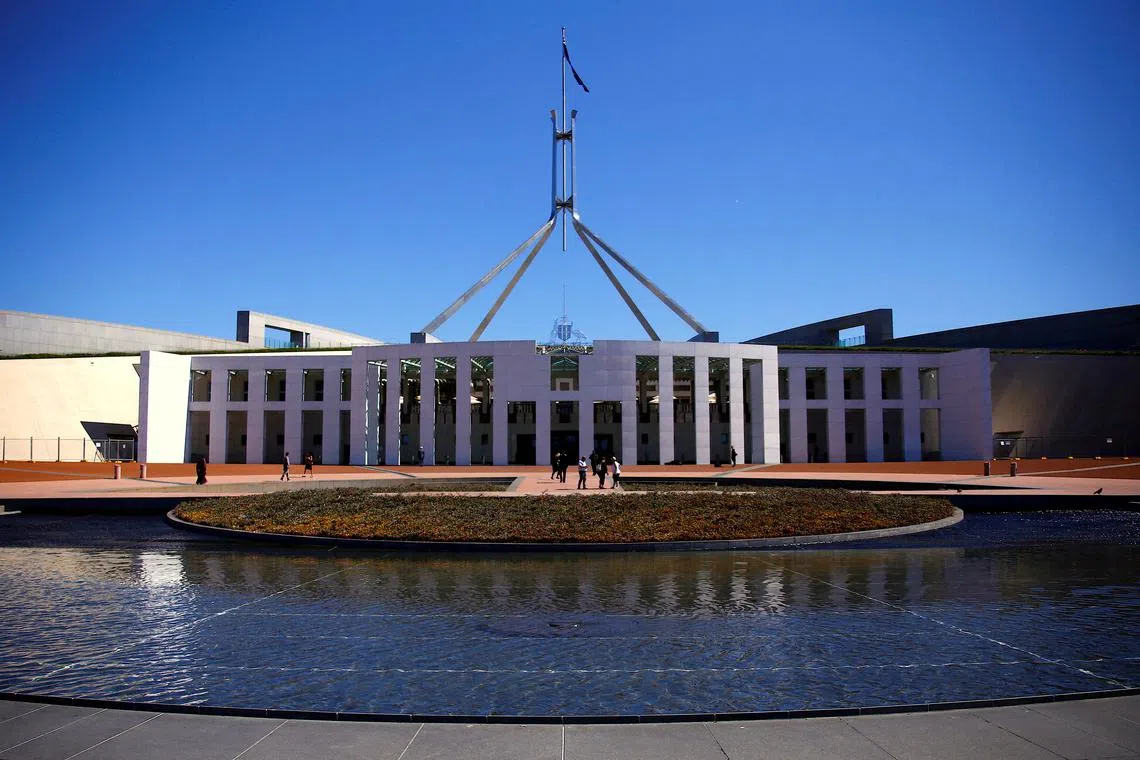Australia’s opposition party opposes indigenous body in Parliament
Sign up now: Get insights on Asia's fast-moving developments

The move comes after the centre-left Labor government moved a Bill last week to hold a national referendum.
PHOTO: REUTERS
SYDNEY – Australia’s main opposition Liberal party said on Wednesday it would oppose setting up a consultative body in Parliament that could advise lawmakers on matters affecting the country’s indigenous people.
The move comes after the centre-left Labor government moved a Bill on March 23 to hold a national referendum
“Having a Canberra Voice won’t resolve the issues on the ground for indigenous communities,” Liberal leader Peter Dutton told reporters in a televised media briefing.
He said that regional and local committees in indigenous communities could be more effective than having a national body.
Mr Dutton, however, said that his party supported changing the Constitution to recognise indigenous people by other means.
The rural-based National Party, the junior partner in the opposition coalition, had earlier flagged it would oppose the Voice, while the left-wing Greens party and some independent lawmakers have promised support.
Making up about 3.2 per cent of Australia’s near 26 million population, the aboriginal and Torres Strait Islander people track below national averages on most socio-economic measures. They were marginalised by British colonial rulers and were not granted voting rights until the 1960s.
A Newspoll by The Australian newspaper on Wednesday showed that 54 per cent of voters would vote “Yes” in the referendum – likely to be held between October and December.
Prime Minister Anthony Albanese has staked significant political capital on the referendum.
Since Australian independence in 1901, there have been 44 proposals for constitutional change in 19 referendums, and only eight have been approved.
Any constitutional alterations in Australia require a national referendum and to succeed, it requires a double majority. That means it requires a national majority of votes as well as a majority of votes in at least four of the six states. REUTERS


